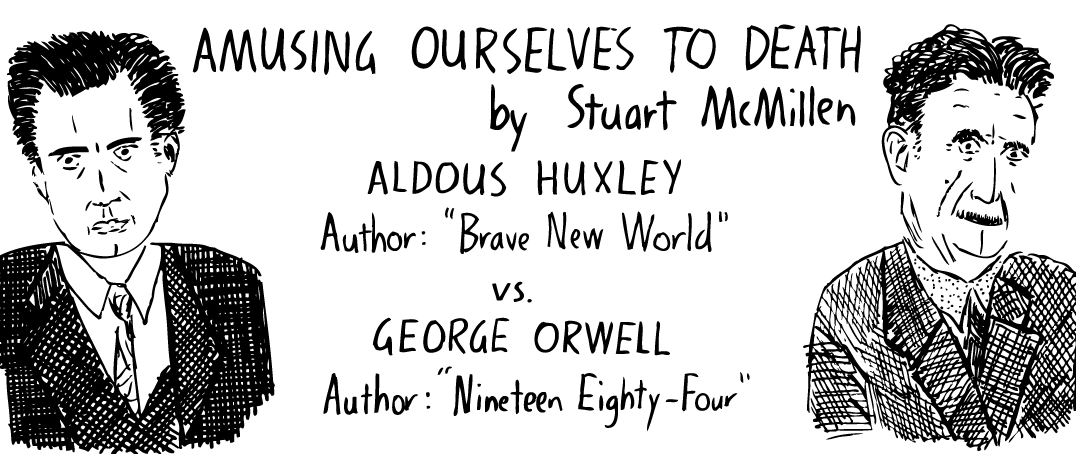

Huxley feared that what we love will ruin us.” Jby Andrew Spencer in Ethics, Blog Neil Postman’s classic book, Amusing Ourselves to Death: Public Discourse in an Age of Show Business, is an assessment of the shifts in Western culture since the advent of modern communication technologies. In short, Orwell feared that what we hate will ruin us. In Brave New World, they are controlled by inflicting pleasure. In 1984, Huxley added, people are controlled by inflicting pain. As Huxley remarked in Brave New World Revisited, the civil libertarians and rationalists who are ever on the alert to oppose tyranny “failed to take into account man’s almost infinite appetite for distractions”. Huxley feared we would become a trivial culture, preoccupied with some equivalent of the feelies, the orgy porgy, and the centrifugal bumblepuppy. Orwell feared we would become a captive culture. Huxley feared the truth would be drowned in a sea of irrelevance.

Orwell feared that the truth would be concealed from us. Huxley feared those who would give us so much that we would be reduced to passivity and egoism. In his book Amusing Ourselves To Death: Public Discourse in the Age of Show Business, the late media critic Neil Postman compares two dystopian futures one, imagined by George Orwell in his. Orwell feared those who would deprive us of information. What Huxley feared was that there would be no reason to ban a book, for there would be no one who wanted to read one. What Orwell feared were those who would ban books. As he saw it, people will come to love their oppression, to adore the technologies that undo their capacities to think. But in Huxley’s vision, no Big Brother is required to deprive people of their autonomy, maturity and history.

Television has conditioned us to tolerate visually entertaining material measured out. Orwell warns that we will be overcome by an externally imposed oppression. Amusing Ourselves to Death: Public Discourse in the Age of Show Business. Contrary to common belief even among the educated, Huxley and Orwell did not prophesy the same thing. Wherever else the terror had happened, we, at least, had not been visited by Orwellian nightmares.īut we had forgotten that alongside Orwell’s dark vision, there was another – slightly older, slightly less well known, equally chilling: Aldous Huxley’s Brave New World. As contemporary, 21st century readers, we must then ask ourselves which parts of Postman’s argument resonate with our present reality, and which parts ring. Much of Postman’s textwhich was written in 1985involves working towards a kind of prediction or projection of an imagined future. When the year came and the prophecy didn’t, thoughtful Americans sang softly in praise of themselves. Progress, Prediction, and the Unforeseen Future.


 0 kommentar(er)
0 kommentar(er)
